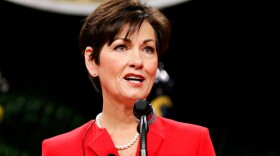
Alison Kodjak
Alison Fitzgerald Kodjak is a health policy correspondent on NPR's Science Desk.
Her work focuses on the business and politics of health care and how those forces flow through to the general public. Her stories about drug prices, limits on insurance, and changes in Medicare and Medicaid appear on NPR's shows and in the Shots blog.
She joined NPR in September 2015 after a nearly two-decade career in print journalism, where she won several awards—including three George Polk Awards—as an economics, finance, and investigative reporter.
She spent two years at the Center for Public Integrity, leading projects in financial, telecom, and political reporting. Her first project at the Center, "After the Meltdown," was honored with the 2014 Polk Award for business reporting and the Society of Professional Journalists Sigma Delta Chi award.
Her work as both reporter and editor on the foreclosure crisis in Florida, on Warren Buffet's predatory mobile home businesses, and on the telecom industry were honored by several journalism organizations. She was part of the International Consortium of Investigative Journalists team that won the 2015 Polk Award for revealing offshore banking practices.
Prior to joining the Center, Fitzgerald Kodjak spent more than a decade at Bloomberg News, where she wrote about the convergence of politics, government, and economics. She interviewed chairs of the Federal Reserve and traveled the world with two U.S. Treasury secretaries.
And as part of Bloomberg's investigative team, she wrote about the bankruptcy of General Motors Corp. and the 2010 Gulf Oil Spill. She was part of a team at Bloomberg that successfully sued the Federal Reserve to release records of the 2008 bank bailouts, an effort that was honored with the 2009 George Polk Award. Her work on the international food price crisis in 2008 won her the Overseas Press Club's Malcolm Forbes Award.
Fitzgerald Kodjak and co-author Stanley Reed are authors of In Too Deep: BP and the Drilling Race that Took It Down, published in 2011 by John Wiley & Sons.
In January 2019, Fitzgerald Kodjak began her one-year term as the President of the National Press Club in Washington, DC.
She's a graduate of Georgetown University and Northwestern University's Medill School of Journalism.
She raises children and chickens in suburban Maryland.
-
If the former drug company executive is confirmed by the Senate, he would replace Dr. Tom Price, who resigned in September after a scandal involving government travel on private aircraft.
-
Republicans have been toying with repealing the Affordable Care Act insurance mandate in their tax bill. The Congressional Budget Office says that would save money but make coverage much more costly.
-
President Trump says the Texas shooting shows that mental health is a "problem of the highest order." This comes amid a debate about mental illness, guns, and his own record on mental health programs.
-
The former president, who has been reticent on policy issues, uses his star power to urge people to shop for health insurance as open enrollment opens on the exchanges.
-
Proposals from Iowa and Massachusetts to create reinsurance that would lower health insurance premiums didn't get off the ground.
-
A draft of the bipartisan legislation obtained by NPR would restore subsidies to insurance companies to assist low-income consumers and require them to go to consumers as rebates.
-
The deal from the Republican and Democratic leaders of the Senate health committee is aimed at stabilizing insurance markets. The president had encouraged the short-term fix on Tuesday.
-
Several state attorneys general say they'll sue to protect the subsidies that help defray costs for low-income consumers. Many physician groups say they oppose the administration's action.
-
President Trump says the administration will no longer pay key Affordable Care Act subsidies. The result could be some consumers pay more for insurance coverage and the cost to the government rises.
-
The administration's move late Thursday was the second swipe that day at the insurance markets created by the Affordable Care Act.










